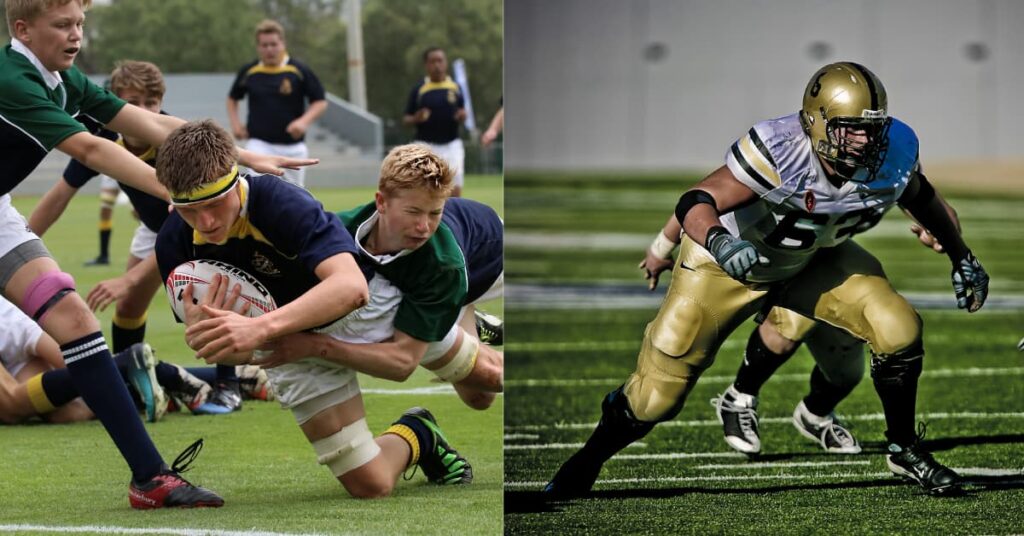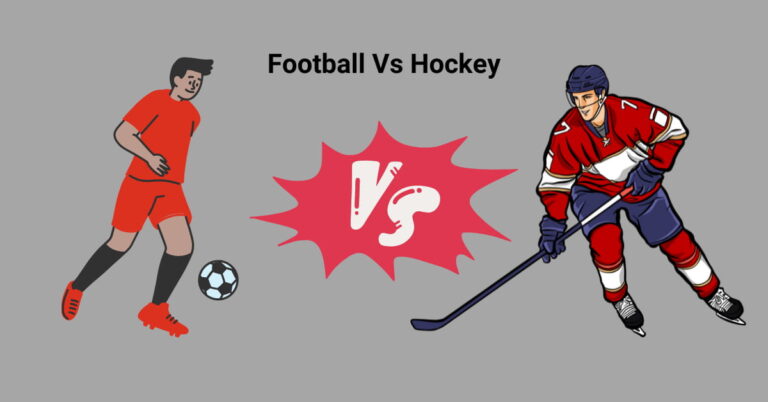Rugby Player vs Football Player – A Simple Comparison
When it comes to sports, rugby, and football are two popular choices that captivate audiences around the world. While both sports involve a high level of physicality and require exceptional skills. There are distinct differences between rugby players and football players.
In this article, we will explore Rugby player vs Football player with the variances in physicality, endurance, and team dynamics of these athletes.
Rugby Player vs Football Player: Physicality
Rugby Player
Rugby is renowned for its physical nature, and rugby players are known for their strength and robustness. They engage in intense physical contact, tackling, and scrums, which demand a great deal of physical strength.
Rugby players typically have a more muscular build and are trained to withstand the physical challenges of the game.
Football Player
While football also requires physicality, it is more focused on speed, agility, and technique. Football players need to be quick on their feet, possess excellent ball control, and make precise passes.
Although football players may not have the same level of physical contact as rugby players, they must still maintain their fitness and strength to excel in the sport.

Endurance
Rugby Player
Rugby matches are often longer than football matches, with two halves of 40 minutes each. As a result, rugby players need to have excellent endurance to last the entire game.
They engage in constant running, tackling, and passing, which require stamina and the ability to recover quickly. Rugby players are trained to endure physical fatigue and maintain their performance throughout the match.
Football Player
Football matches consist of two halves, typically lasting 45 minutes each. Although the duration may be shorter than rugby matches, football players must still possess high levels of endurance.
They engage in continuous running, sprinting, and changes in direction, which demand cardiovascular fitness and the ability to maintain performance over the course of the game.
Team Dynamics
Rugby Player
Rugby is known for its emphasis on teamwork and cooperation. Rugby players must work closely together, communicating and coordinating their movements to achieve success.
The sport requires a strong sense of unity and trust among teammates, as players depend on each other to advance the ball and score points.
Rugby players develop a deep bond and camaraderie with their teammates, which is essential for effective gameplay.
Football Player
Similarly, football is a team sport that relies on collaboration and coordination. Football players must work together to create scoring opportunities, defend against the opposing team, and execute strategic plays.
Communication and understanding between teammates are crucial in football, as each player has a specific role and must contribute to the team’s overall success.

Frequently Asked Questions:
Q: Are rugby players stronger than football players?
Rugby and football players develop different types of strength based on the demands of their respective sports. While rugby players may have a more robust physique, football players focus on explosive power and agility.
Q: Is rugby more physical than football?
Yes, rugby is generally considered more physical due to the high level of contact and tackling involved in the game. Football, on the other hand, emphasizes speed, technique, and agility.
Q: Which sport is harder, rugby or football?
The difficulty of a sport is subjective and depends on personal preferences and physical attributes. Rugby and football both have their unique challenges, and it ultimately comes down to individual perspectives.
Q: Why is rugby less popular than football?
Football has gained more popularity globally due to its exposure through high-profile leagues and international tournaments. Additionally, football’s rules and gameplay are more accessible to a wider audience, contributing to its larger fan base.
Conclusion
While rugby and football share similarities as team sports, there are notable differences in physicality, endurance, and team dynamics between rugby players and football players.
Rugby players possess strength, endurance, and a strong sense of teamwork, while football players emphasize speed, agility, and precise technique.
Both sports have their unique appeal and attract passionate fans worldwide, showcasing the diversity and excitement of the athletic world.








